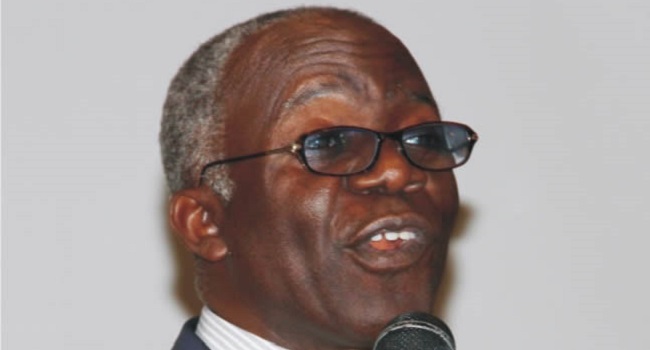Politics
Falana berates Buhari for opposing direct primaries despite ‘being a beneficiary’

Human rights lawyer, Femi Falana has criticised the refusal of President Muhammadu Buhari to assent to the amendment in the Electoral Bill while noting that he was a beneficiary of direct primary.
Falana made this assertion on Tuesday in the aftermath of diverging opinions on the President’s decision to rule out direct primaries in the electoral process.
Ripples Nigeria had reported that the President asked the National Assembly to remove the controversial clause on direct primaries from the bill and return the proposed law to him for assent.
Nonetheless, Falana frowned on the decision explaining how misleading it was and its ramifications for the polity.
“The reason adduced for the rejection of the Electoral Amendment Bill is grossly misleading. Section 87 of the current Electoral Act provides for either direct or indirect primaries. In fact, the APC used direct primary for the emergence of its presidential candidate in 2019. In other words, President Buhari is a beneficiary of direct primary.
“By rejecting the Bill on the ground that it provided for direct primary the President decided to throw away the baby and the bathwater. Thus, the President rejected electronic voting which he had endorsed when he admitted that he is a beneficiary of electronic accreditation of voters by the use of card readers.
“With respect, direct primary is in consonance with section 223 of the Constitution which has imposed a duty on political parties to elect their officers through democratic elections. There is no provision in the Constitution for the imposition of candidates by money bags through indirect primaries.
“The INEC has submitted a bill of N305 billion for the entire 2023 general elections. So who conjured the figure of N500 billion for the primaries to give the impression that it is an expensive venture?
“In any case, since electronic voting had been adopted by the National Assembly it was going to be used for both primary and general elections.
Read also: APC governors behind Buhari’s reluctance to sign Electoral Bill – Falana
“So the cost would have been significantly reduced. The fear of insecurity is a red herring in that political parties have continued to hold huge rallies even in defiance of Covid 19 restrictions imposed by the Federal Government.
“Having rejected to assent to the Electoral Amendment Bill in 2018 and 2021, President Buhari has confirmed beyond any shadow of a doubt that his administration will not allow the Independent National Electoral Commission to conduct credible elections in 2023 and thereafter.
‘”That is going to be the tragic legacy of the President and the ruling party that was campaigning for electoral reforms before the 2015 general elections.
“The challenge before the National Assembly is to invoke the provision of section 58 (5) of the Constitution to pass the Bill into law by the resolution of a two-thirds majority of the members.
“However, if the national assembly cannot muster the required two-thirds majority, section 87 of the Act which allows direct or indirect primaries should be left intact so that the other provisions of the Electoral Amendment Bill 2021 can be passed again by the legislators and assented to by the President,” Falana explained.
Join the conversation
Support Ripples Nigeria, hold up solutions journalism
Balanced, fearless journalism driven by data comes at huge financial costs.
As a media platform, we hold leadership accountable and will not trade the right to press freedom and free speech for a piece of cake.
If you like what we do, and are ready to uphold solutions journalism, kindly donate to the Ripples Nigeria cause.
Your support would help to ensure that citizens and institutions continue to have free access to credible and reliable information for societal development.






















